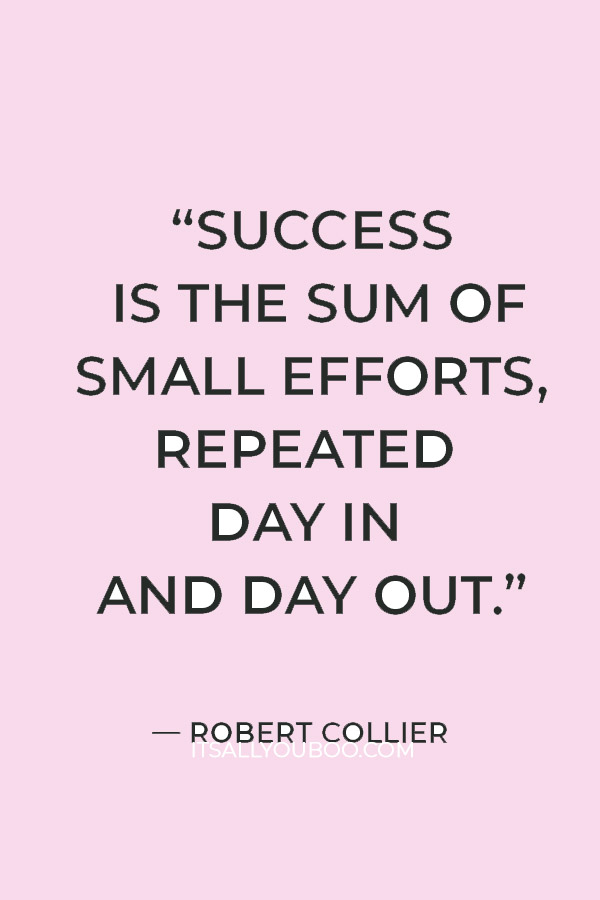How to get motivated to study at home every day? Wondering why you have zero motivation to study for exams?
You are not the only one having trouble with study motivation! Figuring out how to get motivated to study is often the greatest challenge a student faces.
Harder even than the work itself is finding the willpower to start it in a way that is productive, and ultimately beneficial to the overall project.
Knowing how to motivate yourself to start studying requires you to develop effective study skills along with learning new habits and strategies. Getting motivated might not feel easy for you right now, but you can do this.
Process, as they say, is everything. With the right techniques, anyone can make radical improvements to their classwork routine.
In this article, we take a look at how to get motivated to study, and what helpful tips you can use to make sure that your next study session is as productive as possible. Let’s get motivated to study!


THIS POST MAY CONTAIN AFFILIATE LINKS.
IF YOU MAKE A PURCHASE FROM THESE LINKS, I MAY EARN A SMALL COMMISSION.
CLICK HERE FOR MY FULL DISCLAIMER STATEMENT.
How Can I Figure Out How to Get Motivated to Study?
Figuring out how to get motivated to study is a matter of developing a process that is suited to your personality type. It’s well understood that there are distinct categories of learners. You may have heard people reference visual learning over auditory learning or vice versa.
While these distinctions exist they are far from being the only categories relevant to productive studying. Perhaps you’re great at studying short bursts. Or maybe you’re a long hauler.
Everyone has their pattern, and the first step is to learn yours. Until you’ve found yours, it’s easy to feel a natural aversion to the entire process of studying. However, with patience and experimentation, you can create a process that can be replicated to help you find success in all your college classes.
So, think about the last time you studied (or tried to study), what type of studier do you think you are?
- Visual Learner
- Auditory Learner
- Short Burst Studier
- Long Haul Studier
Playing to your natural strengths can help you to spark your motivation to start studying.
Why Do I Have Zero Motivation to Study?
Sometimes, it’s harder to start things than it is to do them. Few things describe this arrangement better than studying. One of the issues is that the work itself is vague. You know that you have to learn something. What you don’t know is how long it will take, or even how you should best go about learning it.
👉🏽 RELATED POST: 8 Motivation Killers You Need To Know About

The steps described below describe routines that may take some of the uncertainty out of your study habits. With careful scheduling, adaptive techniques, time and space management, and other study tips, you can create an environment that is conducive to learning.
Other times, your aversion to studying could not be about the actual studying itself, but rather emotional, mental, and physical challenges. For example, it’s hard to be motivated to study when you’re exhausted, stressed, or even anxious.
Student health risks include frequently experiencing illnesses like the common cold, flu, food poisoning, strep throat, and other energy-draining conditions. In order to perform at school, you really need to give yourself the rest, care, health, and nutrition required.
As you reflect on why you have zero motivation to study ask yourself questions like:
- Am I eating nutrient-rich foods?
- Am I getting enough sleep at night?
- Have I been hydrating enough?
- Am I sick or struggling?
- Do I exercise and move my body?
- Am I feeling my best?
- Am I burnt out or lazy?
You need to take a holistic look at your lifestyle when figuring out why you lack the motivation to study. It requires more than just time management, but life management.
What If You Study Too Much?
It’s worth noting that finding the will to study isn’t an issue for everyone. For some people, the question of how to get motivated to study isn’t so relevant. For them, it’s more an issue of relaxing their motivations so that they don’t crescendo into anxiety.
The struggle is real. It’s called “Relaxation induced anxiety,” and it affects people who often find themselves checking their email, sending work messages, or completing other tasks when they should be getting caught up on their favorite show before they get hit with spoilers on social media.
Undoubtedly, the digital age exacerbates the problem somewhat, especially when distractions like the latest news and social media notifications compete for your attention. For example, students who are searching for a good work/life balance might struggle to strike it when they can very easily review notes that their professor posted online, or participate in a group discussion from their computer.
Dedication certainly isn’t a bad thing, but when it begins to take on a frantic quality, the work suffers along with the student. Relaxation-induced anxiety negatively impacts your mental health. Not only does this impact your personal life, but it can also bleed into your academics, causing you to perform poorly at school even though you are working very hard.
👉🏽 RELATED POST: Mental Health Tips for College Students

Create Healthy and Productive Work Routines
The key? Create a work dynamic that is healthy and productive. For some people, it may mean making schedules that are strictly followed.
For example, if you wish to establish lower anxiety studying regimen, you may schedule a session between 3-7 PM. That way, when 7:01 comes around, you can put away the pens and books and simply relax.
For bonus points, you might also consider aligning your study sessions with a location. Work between the hours of 3-7 PM at the library. That way, when you leave the library, your brain will have an easier time recognizing that its job is to relax and focus on friends and leisure rather than work.
What healthy routines can you create with yourself to help you study, but also prevent you from overdoing it? Here are some reflection questions to help you.
- What time limits can you set to protect yourself and study time?
- When do you study best? Morning, afternoon, evening, or at night? Be specific.
- What locations are most conducive to focusing at home, or at school?
- When specifically are you most energized and willing to study?
Take a moment to self-reflect on the best study schedule for you.
How to Develop Stress Management & Healthy Study Habits
Those trying to figure out how to get motivated to study will also want to build a routine that is more specific to the state of the world since the pandemic. No one would deny that COVID-19 had a major impact on the educational system. However, it’s difficult to quantify exactly what this has meant for students.
From a strictly social point of view, many aspects of college life have gone away completely in the wake of COVID-19. Some schools are remote, completely working online. Those that aren’t tend to emphasize social distancing, and limited social situations.
Combine this with the struggles of online learning, and the ongoing stress of living in a pandemic-plagued world, and it’s clear that modern students face challenges that have never been seen before. Making it even more challenging to find the motivation to study, while dealing with the stress of the times.
To study well, they need to be prepared to address these challenges and ensure they are spending time wisely to find new ways to get motivated.
👉🏽 RELATED POST: Healthy Habits for Students

#1. Make It Social
COVID-19 allowing, students may find it beneficial to make their studying sessions social. While study groups run the risk of devolving into hangout sessions, when properly executed, they come with a host of benefits that solo studying simply can’t provide.
Group studying provides accountability while also giving students access to one another’s expertise. Students interested in forming a study group should make a point of inviting peers who share their academic styles and habits.
While simply grouping a bunch of friends might not get the job done, a group of studious, hardworking learners might. When in-person gatherings are impossible, remote studying sessions may still carry many of the same benefits. Consider hosting an online study session over zoom.
Not sure who to study with? Reach out to someone in your class you have a connection with or something similar. You could also send out a message to your classmates asking who would be interested in forming a study group.
You could also initiate a What’s App group for your class or study group. This connection can help to motivate you to start studying.
#2. Get A Study Buddy
You can go far by yourself, or even farther with someone else. We all have our strengths when it comes to school work, some of us are great at giving speeches and presentations, and others are amazing at math or grammar.
The same is true for studying! Especially for exams, when you’re working off of your notes and doing your best to memorize and prepare for finals. Why rely on yourself alone when you can find support, encouragement, help, and accountability? And dare I say, even friendship.
Plus, if you ever miss a class, lab, or lecture, it’s a good thing to have someone to fill you in and catch you up. Together with your study buddy you can set study goals, get feedback on assignments, keep each other accountable, and study together.
This is a great technique for getting motivated especially if you are more of an introvert, who prefers to study one-on-one, or if you have some social anxieties (which is so common post-pandemic).
One key secret to finding a successful study buddy is to not partner with a best friend, but rather the best potential study friend. You don’t need to travel in the same social circles to study together.
👉🏽 RELATED POST: Top 10 Goals For School

#3. Take Care of Yourself
If your car starts to cough up black fumes, you probably aren’t going to take it on the road for a long trip. Not until the problem has been addressed anyway, right? Unfortunately, students aren’t always so charitable to themselves.
It’s hard to prioritize self-care when there are due dates, papers to write, and books to read. And yet without addressing your own needs, you won’t have enough fuel in the tank to do high-quality work.
The solution? Self-care, self-love, and self-compassion! Get in tune with what you need, always giving yourself the rest and a few 15+ minute breaks throughout your study sessions. Even if cramming for an exam, you need to sprinkle in breaks to stretch, eat, walk, get fresh air, talk, relax and care for yourself.
By making a point to address your own needs, you ensure your brain is well prepared for the long, arduous study sessions that college usually demands. Prioritize sleep, exercise, nutrition, and leisure. Your mind and grades will thank you.
#4. Don’t Be Afraid to Seek Help
When figuring out how to get motivated to study, it can help to make use of your resources. Most colleges and universities are quite good about providing students with the support they need to find success.
This might mean study guides, strategies, tips, or even instructional resources, like free tutors and writing centers. There is no shame in asking for help or reaching out for support.
Help could also come in the form of your TA, professor, or student council representative. Unless you ask for help you never know what type of support you’ll find. It just might surprise you how motivating having someone in your corner can be.
Never underestimate the power of having a supportive community at your back. You never know what inspiring or motivating words that someone says could do for you. How having an encouraging and compassionate ear could do for your motivation. When you’re feeling unmotivated, having a positive influence can change everything.
👉🏽 RELATED POST: Self Discipline In Students

How to Create a Great Study Space to Meet Your Term Goals
Where you work can have a big impact on figuring out how to get motivated to study. Granted, the specifics of your situation will influence how and where you study.
College students who are living on campus often have small quarters that they share with a roommate. Or even trying to study at home can be a challenge when sharing space with family members.
This dynamic can pose a challenge to good studying. The solution? Get strategic and find ways to create or find a great study space.
#5. Pick a Secluded Study Spot
When possible, find a spot that is quiet and isolated to do your studying. It’s hard to get a lot of work done when your roommate is on the phone with their grandmother.
Fortunately, most universities are filled with quiet places to study. Libraries, student centers, commuter lounges, and even cafeterias can all serve as good study session spots.
Even better if you can find a quiet study space where no talking, loud chewing, or socializing is allowed. A pro tip is to find out the secluded spots on campus where the grad students study.
And to avoid the popular hangouts where you find yourself socializing like the quad, common rooms, and cafeterias. Be honest with yourself when seeking out a study spot, remember you’re there to get work done, not caught up on gossip or chit chat.
Where’s your quiet study hideaway on campus or at home? If you don’t have a go-to spot, it’s time to find one.
👉🏽 RELATED POST: Examples of Academic Goals for College

#6. Eliminate Distractions
College students, and everyone else for that matter, are often glued to their devices. Unfortunately, cell phones, tablets, video games, and television are not conducive to good studying habits. If only, right?
For best results, consider choosing an environment that is as free from distractions as possible. Put your phone in a drawer, drape your television with a towel, and do whatever it takes to dive into your work with tunnel vision.
Or even better, choose a distraction-free spot to study if you don’t need a device. If you are tempted to check social media or watch endless youtube videos, then the computer lab probably is not a good study spot for you.
The key to eliminating distractions is to know yourself and the shiny objects you need to avoid. Phone notifications are by design attention-grabbing, so do yourself a favor and put your phone on silent or airplane mode when working. If it’s exam time and you’re always playing Wordle or scrolling on Instagram, delete those apps until the end of the semester.
Then you can reward yourself by checking your phone after studying and acing all your final exams. Just think about how amazing it will feel to indulge guilt-free after?
#7. Don’t Work Where You Sleep
In a dorm room, you usually don’t have that many options where studying is concerned. And yet, there are good reasons to avoid doing work on your bed. Studies have shown that doing work in your relaxation space can create a negative mental association similar to the condition described in our first section.
The problem with studying in bed is that later on in the day you are inevitably going to want to get some sleep there. When that peaceful moment comes, you don’t want to close your eyes and start thinking about the colonial undertones of The Tempest.
Indeed, this issue of negative association is one of the reasons it is a good idea to work outside of your dorm room or bedroom as much as possible. Short of this option, however, it’s a good idea to designate a space as your study zone and stick to it.
Choose a desk, a chair, or even a futon. Anything but your bed. Even better if you turn your back to your sleeping space. Where will you designate for studying?
👉🏽 RELATED POST: College Student Dorm Essentials List

#8. Use The Pomorodo Technique
The Pomorodo Technique for studying breaks work sessions into manageable chunks called “sprints”. For example, the Pomorodo method might have you break a study session up into twenty-five-minute intervals spaced out with five-minute breaks in between.
After four such sessions, you then enjoy a slightly longer, fifteen-minute break. Why does this work? For many people, the timer instills a sense of urgency into their work. When you sit down for three straight hours to write a paper, you might start strong only to accidentally waste twenty minutes on Facebook an hour in.
With the Pomodoro technique, distractions are allowed, but only in controlled intervals. Work hard, and then relax. It’s very easy to maintain an intense pace for twenty minutes. Much less easy to do it for two hours.
Granted, there are potential roadblocks that come with the technique. For one thing, Pomodoro requires a lot of discipline. Twenty-minute work sessions spaced out by five-minute breaks are great. If you get lenient with the breaks, however, you just aren’t going to get much done.
It can also be a little tedious. To hit the right numbers, you will need to have a timer handy. Fortunately, some applications are specifically tuned to the Pomodoro method which might make this easier.
It won’t be for everyone, of course, but those wondering how to get motivated to study are sure to find that this interesting technique of breaking studying into smaller chunks is at least worth an attempt.
How Can I Motivate Myself to Study Every Day?
Research shows that breaking up and spacing out study sessions over time are more productive for your long-term memory. For example, it’s better to study for a a couple of hours per day over the course of a week rather than try to cram all your studying into one long session.
Naturally, you want to make the process of studying as pleasant as possible. Rewards can go a long way towards making this happen. Positive reinforcement has been shown time and again to produce replicable results. You simply need to find incentives that are both immediate and rewarding.
But aren’t good grades their own reward? Sure, but who doesn’t love a real treat.
Good grades are a reward and they can contribute to the positive reinforcement that leads to good study habits. However, there is quite a delay between doing your homework and getting a good grade on it. This is particularly true in college where weeks or even months might pass before you learn how you did on an assignment.
Get Your SMART Goals Worksheet
Ready to get motivated to study? Why not start by setting goals for school and this term. Sign up below to get your FREE SMART Goals Worksheet, form-fillable, and printable, and includes more examples to help you.
Small rewards throughout the studying process can bridge the stimulation gap. A short video game session, a YouTube video, a snack, and a drink with a friend. The reward itself is less important than how it is presented. The best rewards also fuel you!
For best results, make sure your incentive is replicable—meaning you can consistently use this incentive to motivate your work—and that it is enjoyed near enough to the completion of your work that you establish a positive mental association.
Best of luck this semester, finding the motivation to study and get good grades. You got this — remember to focus on how best you focus, feel energized and ready to study.

How do you get motivated to study? What motivates you?

More About Guest Contributor
Ryan Ayers has consulted a number of Fortune 500 companies within a wide-range of industries including information technology, education, and AI. After earning his MBA in 2010, Ayers began working with start-up companies and aspiring entrepreneurs in the technology and education sector.
Last Updated on December 19, 2024






